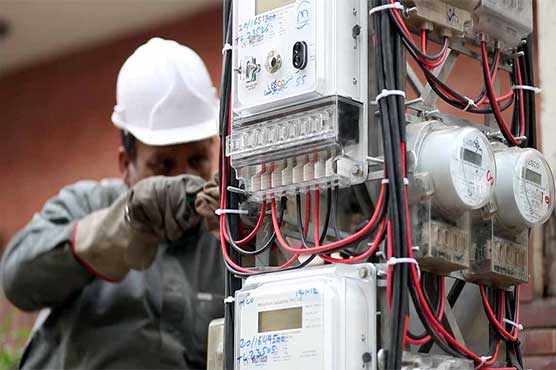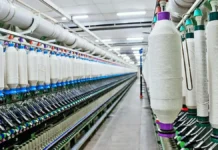- PM Khan against burdening masses with increase in power tariff, orders alternative solutions
- Asks officials to work on tariff rationalisation, curtailing line losses and electricity theft
ISLAMABAD: The Economic Coordination Committee (ECC), which again remained undecided about increasing the power tariff on Monday, is unlikely to approve the hike even in next meeting of the committee as Prime Minister Imran Khan is not in favour of burdening the people any further.
According to insiders, the PM has instructed the Ministry of Finance to focus on tariff rationalisation, theft and line losses instead of burdening the existing customers. Although the new government needed to increase the power tariff, as required for the next programme of the International Monitory Fund (IMF), it remained indecisive owing to the recent criticism from public following an increase in the gas prices.
The PM, according to sources, asked the ministries concerned to look for alternative solutions, including curtailment of line losses and electricity theft, and deferred the matter.
In case the ministries fail to make progress in improving generation, distribution and supply systems of electricity, the government will be left with no option but to increase tariff, sources said.
On the other hand, sources in the Ministry of Energy claimed that the improvement in distribution and transmission system is not an easy task as it required time and investment.
In a statement, the Ministry of Finance said that the ECC, which met with Finance Minister Asad Umar in the chair, considered the proposal for electricity tariff rationalisation, submitted by the Ministry of Power, and directed the officials concerned to submit a detailed plan for improvements in the power sector, especially the measures to increase recoveries and reduce losses, before the proposed tariff rationalisation plan could be approved.
During the meeting, the auditor general shared with the ECC a report on audit findings pertaining to financial and operational issues in the four power distribution companies i.e. HESCO, PESCO, QESCO and SEPCO in the years 2016-17 and 2017-18. The report highlighted significant areas of the distribution system responsible for line and commercial losses.
Finance Minister Asad Umar directed the Power Ministry to take remedial measures on the issues raised in the report.
The ECC also discussed another proposal of the power division regarding payment of subsidy for agricultural tubewells in Balochistan. The committee decided to consult the Balochistan chief minister before taking a decision on the matter.
The ECC would meet again on Wednesday to consider the above-mentioned plan and tariff rationalisation proposals.
Earlier, it was expected that around 20 per cent increase in electricity price would be approved by the government. If it is approved in the future, the government could collect more than Rs200 billion per year to tackle the growing circular debt.
The announcement pertaining to the increase in the power tariff was made last week by the government after a team of the IMF announced to visit Pakistan to discuss a bailout package requested by the finance minister. The IMF team which visited Pakistan last week had reportedly called for a further hike in gas and power tariffs.
On October 16, the ECC had postponed the decision of electricity tariff hike for one week owing to the absence of the energy minister.
Addressing a press conference after the meeting of the ECC, Federal Minister for Information Fawad Chaudhry had said that the government will soon take decisive steps on the electricity price increase.
The minister said that the current electricity sale price of Rs11.71 per unit had shot up due to the setting up of expensive power generation plants and net hydel profit payments to provinces by the last PML-N government.
Against the Rs11.71 end-consumer price, the cost of generation was earlier Rs12.90 per unit and the government was bearing a subsidy of Rs1.19 per unit, he added.
The minister said that a deficit of Rs1.2 billion was being incurred daily in the winter months and Rs1.8 billion in the summer months. “As a result of these losses, circular debt is ballooning by Rs34 to 36 billion every month.”
It is pertinent to mention that the government deferred matter of power tariff hike for the fourth time.
After an increase in the gas tariff, the government was expected to increase the price of electricity by Rs3.75 per unit.
Sources said that the power division had suggested an increase of Rs2.20 per unit, almost 35-39 per cent increase for domestic consumers with monthly consumption of 300-700 units, and about 26 per cent average increase for lower slabs of below 300 units, according to sources.
They added that the division had estimated the impact of past losses, inadequate recoveries, late notifications and other inefficiencies etc. at about Rs2.30 per unit, requiring an average Rs1.60 per unit hike in the power tariff.
It is worth mentioning that the ECC has been struggling to decide on the electricity tariff increase worked out by the National Electric Power Regulatory Authority (NEPRA) under policy guidelines from previous government, envisaging higher cost of inefficiencies and theft charged to paying consumers.
NEPRA calculated Rs3.90 per unit increase in power tariff and had suggested that after accounting for the existing subsidy allocation in the budget, government has to increase average power tariff by about Rs2 per unit.
PM against power tariff hike, orders alternative solutions

Comments are closed.
Must Read
PSX announces Top 25 Companies; Engro, FFC and HBL among top...
Winners selected through rigorous quantitative and qualitative criteria evaluating profitability, governance and sustainability























Nice profit